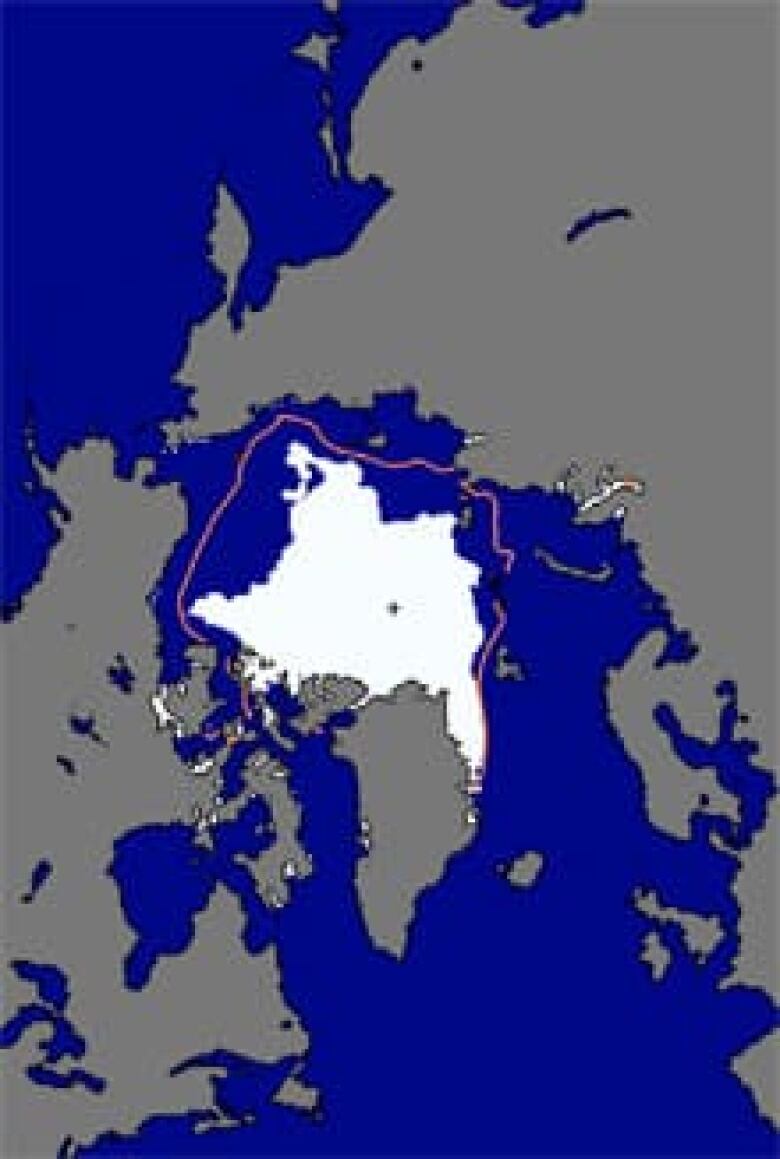Arctic ice near all-time low, 2nd study confirms

A second major scientific body has said Arctic sea ice is about as low as it's ever been since satellites began monitoring it.
And a researcher at the U.S.-based National Snow and Ice Data Center said that open water at the top of the globe may already be affecting weather in more southern reaches of North America.
The amount of ice in the North is almost at the all-time low of 2007 and could drop further in coming weeks, the centre said Thursday. That assessment came days afterGerman researchers concludedice cover is already less than it was four years ago, which was the lowest since satellite monitoring began in 1979.
There is now about one-third less ice in the Arctic than the 1979-2000 average.
Northern sea ice is considered a leading indicator of global warming.
Although the National Snow and Ice Data Center suggests the ice level could still drop below the all-time low, this year's result is more worrisome because it happened in a summer that didn't have the same kind of unusual weather as in 2007.
Walter Meier, a researcher at the centre, said that year was marked by remarkably sunny skies and winds that tended to bunch the ice together. This year had none of those special conditions.
'We haven't seen ice cover this low probably for the last several thousand years' Researcher Walter Meier
This year "has more to do with the changing long-term climate of the Arctic rather than just a single one-year extreme event," said James Overland, an oceanographer with the U.S. National Oceanic and Atmospheric Administration.
Although satellite data only exists for the last 32 years, there's ample other evidence that the extent of modern sea ice is at historic lows, Meier said.
"We haven't seen ice cover this low probably for the last several thousand years."
Hotter Arctic could mean cooler south
Much has been made of the possibility of faster shipping routes and greater access to resources in an increasingly ice-free Arctic, but Overland said there are also implications for weather in the rest of North America that are starting to emerge.
"There is some evidence that warming in the Arctic will bring cooling to some of the weather further south," he said.
Air warms up more over dark open water than it does over white, reflective sea ice and some scientists believe that the warmer air is starting to disrupt wind patterns that normally keep Arctic air bottled up in the North. Overland theorizes that disruption may have helped create the cold, snowy winters of 2008 and 2009 in Eastern Canada, as well as the cold weather along the U.S. east coast in 2009 and 2010.
"We're not sure about this," said Overland. "It's very controversial."
It is expected that as early as 2030, the Arctic will be ice-free for part of the year.












_(720p).jpg)


 OFFICIAL HD MUSIC VIDEO.jpg)
.jpg)



























































































